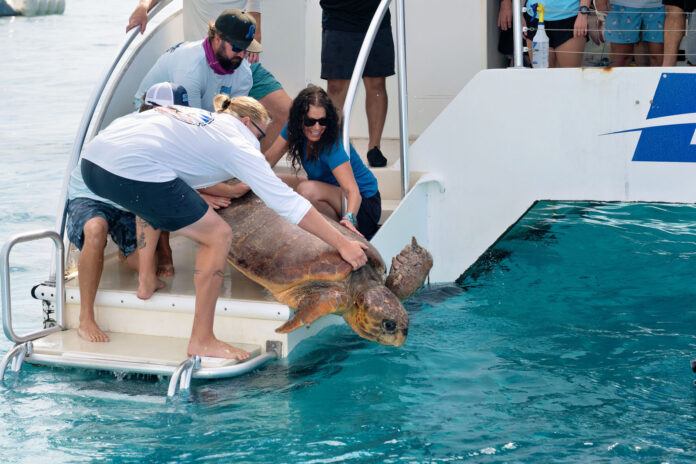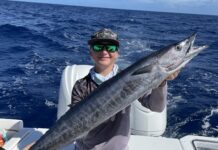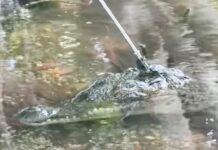
Less than two weeks after being rescued from the pristine waters off the Florida Keys, a giant loggerhead turtle is back where he belongs, thanks to the quick thinking of a local underwater photographer and the staff at the Turtle Hospital.
Affectionally named “Lenny” by the team that rescued him, the 322-pound loggerhead sea turtle was spotted when Mike Papish, an underwater photographer, saw him in distress off Islamorada and sprang into action.
“Went up, called the Turtle Hospital and said there’s an injured turtle here,” said Papish. “They said (to) try to get them pictures of it.”
Papish then worked with the Turtle Hospital and Sundance Water Sports to rescue the injured turtle. The Turtle Hospital transported the loggerhead to its facility to treat his severe injuries on March 14.
“He was found not using his front flipper, due to a predator wound, and when I say predator wound, part of the flipper was actually missing and he had bites to his head,” said Bette Zirkelbach, manager at the Turtle Hospital.
The medical team got to work collecting blood and taking X-rays and measurements. Lenny’s two-week stay at the Turtle Hospital included treatment with broad spectrum antibiotics, fluids, pain medication, vitamins, wound care and class 4 laser treatment.
Timing was critical for Lenny’s release, as mating season in the Florida Keys is in full swing.
“We see sub-adult and adult loggerheads here in the Florida Keys,” said Zirkelbach. They’re here, they’re looking for dates, they’re here mating.”
North Atlantic loggerheads are the biggest nesting population in Florida and can live up to 100 years. Lenny is estimated to be 60 to 70 years old.
“It’s important to get him out there with the ladies so they can propagate the species,” Zirkelbach added.
More information is at www.turtlehospital.org.



















